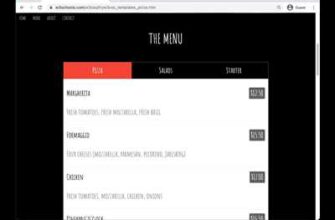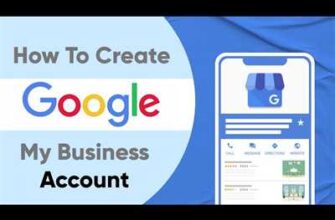
Having a professional email address is crucial for any business. It not only creates a strong impression with your prospects and customers but also helps in building trust. Most people will look at your email address as an indication of how legitimate and professional your business is.
So, what do you need to make your own email company? The first thing you need is a domain name. This will be the address that your customers will enter to send you an email. It should be clear, easy to remember, and related to your business. For example, if your company name is Smith & Co, then a good domain name would be something like “[email protected]”.
Once you have a domain name, you will need to choose an email provider. There are many providers to choose from, but some of the most popular ones are Google Workspace, Microsoft 365, and Zoho Mail. These providers offer a combination of email hosting, office tools, and other features that can help you run your business more efficiently.
Now that you have a domain and a provider, it’s time to set up your email accounts. Depending on the provider you choose, you will have different options for creating and managing your email accounts. Some providers offer a quick and easy setup process, while others may require more technical knowledge.
When creating your email accounts, it’s important to think about how you want your customers to perceive your business. Custom email addresses, such as “[email protected]” or “[email protected]”, can make your business look more professional and trustworthy. It also allows you to create separate email addresses for different purposes, such as customer support, sales inquiries, or general information.
In addition to creating custom email addresses, you should also think about the follow-up emails you will send to your customers. This is where email tools and providers can help. Many providers offer built-in email templates, automation features, and tracking tools that can help you send personalized and timely emails to your customers.
To sum up, creating your own email company is not as complicated as it may seem. By choosing the right domain and email provider, and using the right tools and strategies, you can create a professional email address that will leave a lasting impression on your customers. So, don’t wait until 2023 – start building your email company now and enjoy the benefits it will bring to your business.
40 Ideas for Creating a Professional Email Address in 2023
When it comes to creating a professional email address for your business in 2023, there are several factors to consider. Your email address is an important part of your online workspace, and it can make a huge impression on your prospects and customers. Here are 40 ideas to help you choose the right email address for your business:
| # | Idea | Benefits |
|---|---|---|
| 1 | Use your business name | Creates brand consistency and professionalism |
| 2 | Add your own name | Personalizes your email and builds trust |
| 3 | Combine your business name and your name | Shows the connection between you and your company |
| 4 | Include a keyword related to your business | Helps with SEO and makes your email easy to remember |
| 5 | Use a custom domain | Looks more professional and trustworthy |
| 6 | Choose a unique domain extension | Stands out and adds a modern touch |
| 7 | Consider using your office address | Shows your physical presence and legitimacy |
| 8 | Create multiple email accounts | Allows for different departments and better organization |
| 9 | Use a professional email provider | Offers more features and better security |
| 10 | Take advantage of email forwarding | Redirects emails to your main address for convenience |
| 11 | Consider using a paid email provider | Ensures reliability and premium support |
| 12 | Opt for a provider that offers group email addresses | Allows for easy collaboration with your team |
| 13 | Choose a provider that integrates with your other tools | Makes your workflow more efficient |
| 14 | Check if the provider offers email marketing tools | Helps with your email campaigns and customer engagement |
| 15 | Consider the payment options offered by the provider | Find a provider that aligns with your budget and preferences |
| 16 | Look for providers with strong customer support | Ensures quick assistance when you need it |
| 17 | Research the most popular email providers | Find out what other businesses are using and why |
| 18 | Consider using a provider that offers a free trial | Allows you to test the service before committing |
| 19 | Choose a provider that offers mobile support | Allows you to access your emails on the go |
| 20 | Use a provider that has a good spam filter | Reduces the risk of receiving malicious or unwanted emails |
| 21 | Consider a provider that offers encryption | Ensures the security and privacy of your emails |
| 22 | Use a provider that allows you to set up email aliases | Helps with organization and managing different email addresses |
| 23 | Include your contact information in your email signature | Makes it easy for recipients to get in touch with you |
| 24 | Add a professional photo to your email profile | Shows a personal touch and builds trust |
| 25 | Consider using your initials in your email address | Helps to establish a professional identity |
| 26 | Research email address best practices | Stay up to date with the latest trends and techniques |
| 27 | Don’t use numbers or special characters in your email address | Makes it easier to remember and type |
| 28 | Consider using your name followed by your role | Clearly states your position within the company |
| 29 | Include your location in your email address | Shows your local presence and can be beneficial for local SEO |
| 30 | Choose a provider that offers email backup | Protects your valuable data from being lost |
| 31 | Consider using a memorable word or phrase in your email address | Makes it easier for recipients to remember and recognize you |
| 32 | Use a hyphen to separate words in your email address | Makes it easier to read and understand |
| 33 | Think long-term when choosing a provider | Ensures that you won’t have to switch providers in the future |
| 34 | Consider using a professional email signature generator | Makes your email signature look more polished and consistent |
| 35 | Include your social media handles in your email signature | Encourages recipients to connect with you on other platforms |
| 36 | Choose a provider that offers email templates | Makes it quicker and easier to create professional emails |
| 37 | Consider using your industry or niche in your email address | Establishes your expertise and specialization |
| 38 | Research the email providers that your competitors use | Gain insights into what works in your industry |
| 39 | Choose a provider that offers a user-friendly interface | Makes it easier for beginners to navigate and use |
| 40 | Consider using a provider that offers email hosting | Allows you to have full control over your email infrastructure |
With these 40 ideas, you can begin creating a professional email address that will leave a lasting impression on your prospects and customers in 2023. Remember, choosing the right email address is crucial for your business, so take the time to look into different options and find the one that best suits your needs. Good luck!
What is a professional email address
A professional email address is an email address that is associated with a business or organization. It typically includes the company’s domain name and is used for official communication purposes. Having a professional email address is crucial for creating a good impression and establishing credibility with customers, clients, and prospects. It shows that you are serious about your business and have taken the time to set up a dedicated email address.
Most businesses choose to have a custom email address that uses their domain name. For example, if your business is called Smith & Co., your professional email address might be something like [email protected]. This not only looks more professional, but it also helps to build brand recognition and clear association with your company.
There are several benefits to using a professional email address:
- It creates a sense of trust and reliability since customers are more likely to trust an email from [email protected] than [email protected]
- It helps to establish your brand identity and increases brand recognition
- It allows for better organization and segmentation of emails
- It provides a more professional appearance for sending out follow-ups, proposals, and payment requests
When choosing a professional email address, you will need to purchase a domain name from a domain hosting provider. There are many providers to choose from, such as Google Workspace, which offers a combination of email, office tools, and cloud storage. Once you have your domain name, you can set up email addresses using the hosting provider’s tools and services.
Creating a professional email address is a relatively quick and easy process, especially for beginners. You can follow a step-by-step guide provided by your domain hosting provider, and they will walk you through the necessary steps to set up your email address.
In conclusion, a professional email address is an essential tool for any business or organization. It helps to establish credibility, build brand recognition, and create a more professional image. By choosing a custom email address with your own domain name, you can make a great first impression with your customers and prospects.
A quick primer – Custom email for beginners
When it comes to creating a custom email address for your business, there are many providers and options to choose from. The right provider can offer you a domain name that reflects the name of your company, making your email addresses look professional and more trustworthy to your customers.
One of the most popular email providers is Google Workspace, formerly known as G Suite. With Google Workspace, you can buy a domain name and create custom email addresses for your business. This is crucial because having a professional email address can make a big impression on your prospects and customers.
Another option is to use a hosting provider that offers email services. Many hosting providers also offer the ability to create custom email addresses using your domain name. This can be a great option if you already have a website hosted with a provider and want to have your email accounts with the same company.
There are also some free email providers that allow you to create custom email addresses, such as Outlook.com or Yahoo Mail. However, these options may have limitations and may not offer the same level of professionalism as paid providers.
When choosing a provider for your custom email, consider the following factors:
- Cost: How much are you willing to pay for email services?
- Features: What features do you need for your business?
- Storage: How much storage space do you require for your emails?
- Security: How secure is the provider’s email service?
Once you have chosen a provider and purchased a domain name, you will need to set up your custom email accounts. This involves entering the necessary information, such as your name, email address, and password. Depending on the provider, you may also have the option to set up additional features, such as email forwarding or autoresponders.
Having a custom email address can help you send a clear message to your customers that you are a professional business. It can also help with follow-ups and building trust with your prospects. Most importantly, it gives you a unique identity that sets you apart from others in your industry.
In conclusion, creating a custom email address is a simple and effective way to make your business look more professional and establish a strong online presence. By choosing the right provider and following these guidelines, you can set up your own custom email for your business in no time.
1 Buying a domain name
When starting your own email company, one of the first steps is to buy a domain name. A domain name is the address that customers will enter when they want to send an email from their email accounts.
Choosing the right domain name is a crucial step, as it will be the first impression that customers will have of your business. It needs to be clear, professional, and easy to remember. Many beginners make the mistake of choosing a domain name that is too long or too complicated, which can make it difficult for customers to find and remember.
There are many domain name providers available, including Google Domains, which offers a quick and easy process for buying a domain name. When choosing a domain name provider, look for one that offers a combination of a user-friendly interface, good customer support, and competitive pricing.
Once you have chosen a domain name provider, you can begin the process of buying a domain name. Most providers offer tools to help you search for available domain names and see if the one you want is already taken. You will need to enter the name you want into their search tool, and it will show you if it is available or not.
If the domain name you want is already taken, don’t worry! You can try different combinations or use alternative extensions like .net or .org. If your business name is already being used as a domain name, you can consider using your name along with a profession or location, like smithoffice.com or smithlawfirm.com.
When buying a domain name, you will also need to consider the payment options. Most providers offer different packages and payment plans, so choose the one that suits your needs and budget. It’s important to note that you will need to renew your domain name registration on a regular basis, usually annually.
Buying a domain name is just the first step in creating your email company, but it is one of the most important ones. A professional-looking domain name will help you attract more customers and make a good impression on prospects. So take your time, do some research, and choose the right domain name for your business.
2 Choosing an email hosting provider
When it comes to creating an email company, choosing the right email hosting provider is crucial. Since email is a primary means of communication for most businesses, it’s important to have a reliable and professional email platform.
There are many providers out there that offer email hosting services, but it’s essential to find the one that will meet your needs. Here are some things to consider when choosing an email hosting provider:
- Reliability: You need an email hosting provider that will ensure your emails are sent and received in a quick and efficient manner. Look for a provider with a good reputation for uptime and reliability.
- Security: Your company’s emails may contain sensitive information, so it’s crucial to choose a provider that prioritizes security. Look for providers that offer encryption and advanced spam filters.
- Storage: Consider how much storage space you’ll need for your email accounts. Many providers offer different plans with varying amounts of storage, so make sure you choose one that can accommodate your needs.
- Custom domain: Having a custom domain for your email addresses can give your business a more professional and credible impression. Look for a provider that allows you to use your own domain name.
- Features and tools: Consider what features and tools are important to you and your business. Some providers offer advanced collaboration tools, follow-up reminders, and other productivity features.
- Support: Check if the provider offers reliable customer support. You may need assistance with setting up your email accounts or troubleshooting any issues that may arise.
- Pricing and payment: Compare the pricing plans of different providers and consider the payment options available. Some providers offer annual plans, while others allow monthly payments.
One of the most popular email hosting providers is Google Workspace (formerly G Suite). They offer a combination of professional email services, along with other productivity and collaboration tools. Google Workspace is used by many businesses worldwide and is known for its reliability and security.
When choosing an email hosting provider, it’s important to do your research, read reviews, and compare the different options available. Take your time and consider the specific needs of your business before making a decision. Remember, the right email hosting provider can make a huge difference in the efficiency and professionalism of your company’s communication.
What are the benefits of a business email address

A business email address is one that uses your company’s domain name in the email address, such as [email protected]. There are several benefits to using a business email address, especially for beginners who are just starting out in the business world. Here are some of the key benefits:
- Professionalism: Having a business email address gives a professional impression to your customers and prospects. It shows that you take your business seriously and adds credibility to your brand. A professional email address is crucial when it comes to creating a positive image for your company.
- Clear branding: By using your company’s domain name in your email address, you make it clear to recipients who the email is coming from. This can be especially helpful if your company name is already well-known or if you have a specific domain name that reflects your business.
- Increased trust: Studies have shown that customers are more likely to trust emails coming from a business email address rather than a free email provider like Gmail or Yahoo. A business email address can help establish trust with your customers and increase the likelihood that they will open and engage with your emails.
- More control: When you have your own business email address, you have more control over your email accounts and can easily manage and organize them. You can create multiple accounts for different purposes (sales, support, etc.) and easily delegate access to team members.
- Customization: With a business email address, you have the freedom to choose the name before the @ symbol. This gives you the opportunity to create email addresses that are relevant to your business, such as [email protected] or [email protected].
- Improved deliverability: Some email providers prioritize business email addresses over free email addresses, which means that emails sent from your business email address are more likely to reach the recipient’s inbox and not end up in the spam folder.
- Follow-ups and reminders: Having a business email address allows you to easily send follow-up emails and reminders to your customers. This can help improve customer satisfaction and increase sales by keeping your business top of mind.
- Access to tools and integrations: Many email hosting providers offer a range of tools and integrations that can help you streamline your business communication. These tools can include email filtering, email templates, automated replies, and more.
- Huge storage capacity: Unlike free email providers, which often have limited storage, a business email address typically comes with a large storage capacity, allowing you to store and organize large volumes of emails.
- Payment and office address: Some payment providers and business registration services require a business email address as part of the verification process. Additionally, a business email address can serve as your official office address for communication purposes.
In conclusion, a business email address offers many benefits that can help you make a professional impression, establish trust with your customers, and improve your business communication. Whether you are a beginner or already have an existing email account, creating a business email address is a smart move.









